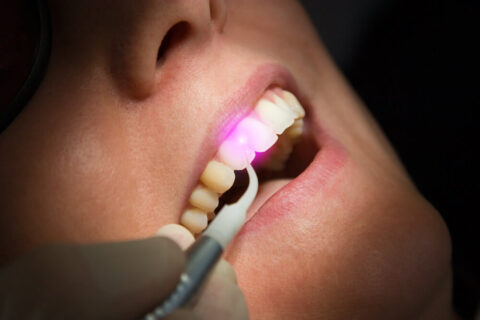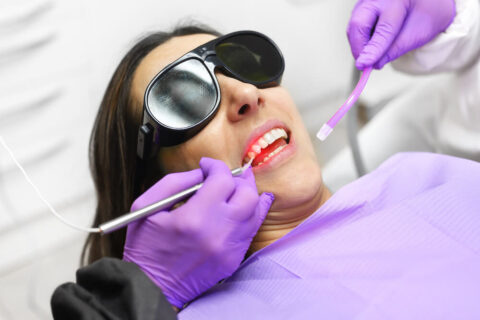What Are the Stages of Periodontal Disease?
The condition of your gum tissue plays a significant role in the state of your overall oral health. If your dentist has diagnosed you with periodontal disease in Denver, it’s vital to prevent this condition from progressing and to restore the health of your gums. There are four major stages of periodontal disease:
Gingivitis
The first stage of periodontal disease, gingivitis, is usually the result of poor oral hygiene. Every day, a film of bacteria grows on your teeth. When you properly brush your teeth for a full two minutes twice per day, this film is easily removed. If, however, the film is left for too long, it can harden into plaque and tartar. When this occurs, the bacteria can infect and irritate your gums. Gingivitis typically causes redness and swelling in the gums, occasional bad breath, and bleeding when flossing.
Early Periodontitis
If gingivitis is not treated, the gum disease can progress to the second stage of early periodontitis. At this point, individuals will experience a worsening of their gingivitis symptoms, and the gum and surrounding tissue inflammation can lead to early bone loss as the infection destroys nearby supportive bone structure.
Moderate Periodontitis
In the third stage of periodontal disease, the infection reaches deeper into the gums and continues to destroy bone tissue. While patients aren’t likely to experience any pain in their jaw, the infectious bacteria often make their way into the blood stream and put stress on the immune system. The patient may begin to experience loosened and shifting teeth, as well as receding gums.
Advanced Periodontitis
Once gum disease reaches its most severe stage, advanced periodontitis, the infection worsens and the patient’s teeth become more vulnerable to loosening due to bone loss. At this point, the gums remain red and swollen and may ooze blood and pus. The patient is likely to experience pain when chewing, extremely bad breath, and cold sensitivity. Periodontal abscesses are likely to occur, and the chance of tooth loss is significantly increased. To prevent reaching this stage, follow your dentist’s advice as soon as she notices signs of gum disease.



